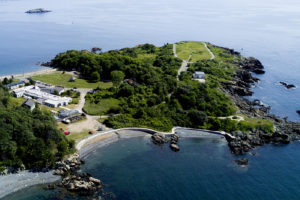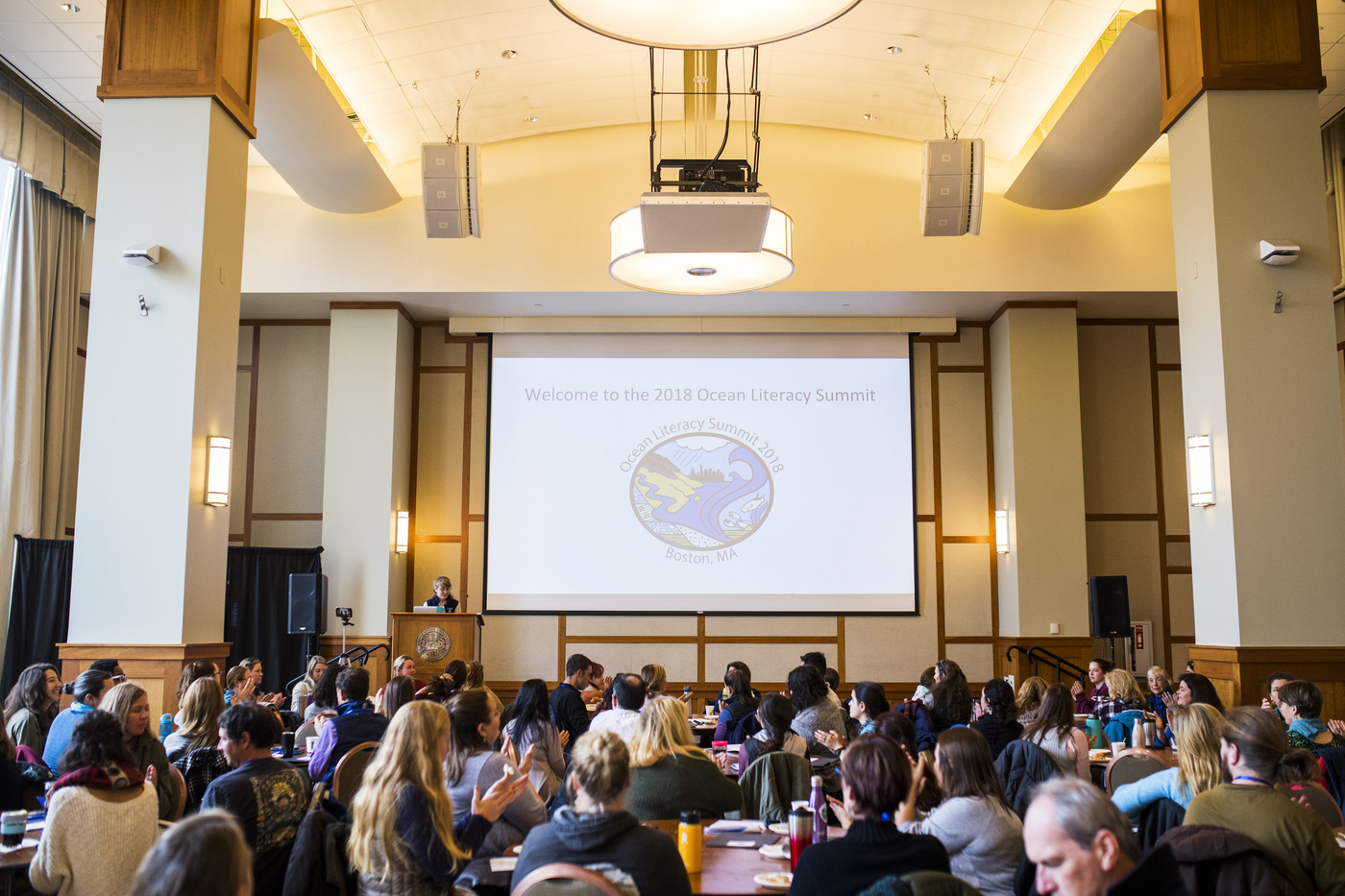Far from everyone has direct access to the ocean. But the ocean affects everyone’s life. It provides food and medicine, creates our oxygen, and moderates our climate. Scientists treat this as common knowledge, but for many people these important functions of the body of water that covers two-thirds of the Earth’s surface go unnoticed.
To devise ways to communicate ocean science to the general public, researchers, teachers, and communicators brought drones, scientific tools, bags of beach garbage, and an excess of colored markers to Northeastern’s Boston campus Thursday for the first day of the 2018 Ocean Literacy Summit.
“If everyone has at least a basic understanding of how the ocean functions and interacts to shape the Earth, it will help us all,” said Aimee Bonanno, the program manager for the New England Ocean Science Collaborative, which organizes the conference.
The Ocean Literacy Summit, held in a different New England location every other year, focuses on a particular principle of ocean literacy, drawn from a list of seven written by the organization in 2005.
This year’s focus was principle two: The ocean and life in the ocean shape the features of Earth.

07/06/17 – NAHANT, MA. – Marine Science Center in Nahant on July 6, 2017. Photo by Benjamin Bertsch/Northeastern University
On Thursday, participants discussed the importance of ocean literacy and how to communicate it in a series of workshops. Some participants explored technology to visualize coastal ecosystems in the classroom and played with a simple robot modeled after a manta ray. Others learned about opportunities for their students to collect data as they clean up beaches or contribute information to large coastal surveys. The summit also offered a tour of Northeastern’s Marine Science Center.
Friday’s schedule includes sessions on sea level rise and coastal erosion, co-hosted by scientists and educators, as well as a science fair and an art show.“A lot of people think marine biology when they think of ocean science, but there’s so much more,” said Valerie Perini, the outreach coordinator for Northeastern’s Marine Science Center in Nahant, Massachusetts, and current chair of the New England Ocean Science Collaborative. “This principle has allowed us to embrace some of our colleagues in the geosciences and the physical sciences.”
Kate Leavitt, director of mission at the Seacoast Science Center in New Hampshire, said that the conference is unique in that it focuses equally on the science being done and the educators who will share it. “It’s showcasing that the work is important, but we also need to get it out.”
Leavitt, who has been attending the summit since the first one was held in 2006, said it is a place to develop new collaborations, catch up with the latest science, and find new tools to help communicate the importance of our oceans.
That’s the first step in conservation, Perini said: “Developing this initial knowledge and understanding, so that you can inspire appreciation and conserve and protect those resources.”
For media inquiries, please contact [email protected].
This story was originally published by News@Northeastern on November 15th, 2018.

